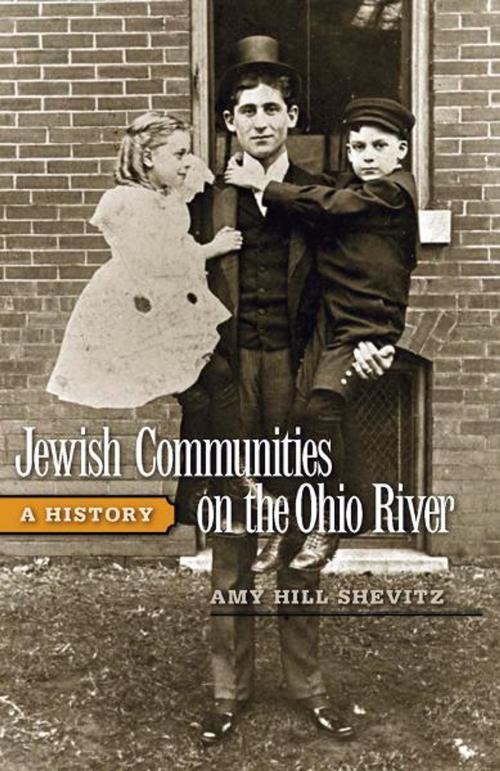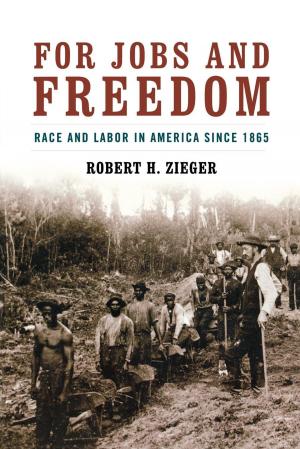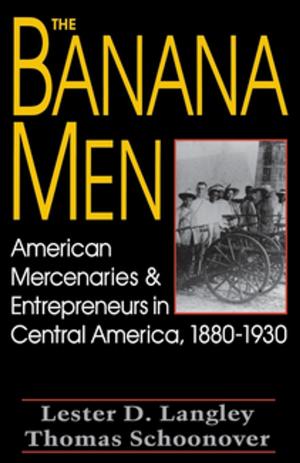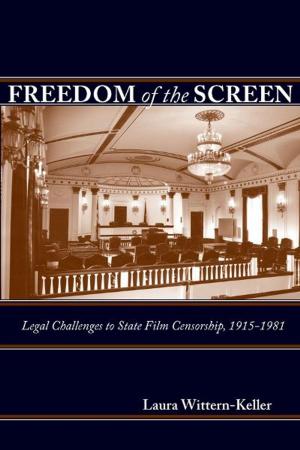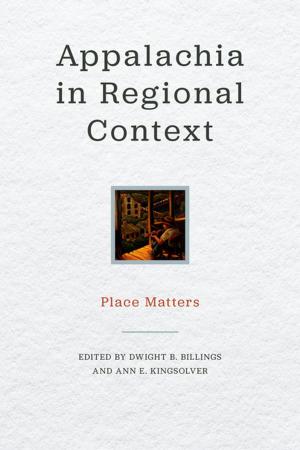Jewish Communities on the Ohio River
A History
Nonfiction, History, Americas, United States, State & Local, Jewish| Author: | Amy Hill Shevitz | ISBN: | 9780813138435 |
| Publisher: | The University Press of Kentucky | Publication: | August 17, 2007 |
| Imprint: | The University Press of Kentucky | Language: | English |
| Author: | Amy Hill Shevitz |
| ISBN: | 9780813138435 |
| Publisher: | The University Press of Kentucky |
| Publication: | August 17, 2007 |
| Imprint: | The University Press of Kentucky |
| Language: | English |
When westward expansion began in the early nineteenth century, the Jewish population of the United States was only 2,500. As Jewish immigration surged over the century between 1820 and 1920, Jews began to find homes in the Ohio River Valley. In Jewish Communities on the Ohio River, Amy Hill Shevitz chronicles the settlement and evolution of Jewish communities in small towns on both banks of the river -- towns such as East Liverpool and Portsmouth, Ohio, Wheeling, West Virginia, and Madison, Indiana. Though not large, these communities influenced American culture and history by helping to develop the Ohio River Valley while transforming Judaism into an American way of life. The Jewish experience and the regional experience reflected and reinforced each other. Jews shared regional consciousness and pride with their Gentile neighbors. The antebellum Ohio River Valley's identity as a cradle of bourgeois America fit very well with the middle-class aspirations and achievements of German Jewish immigrants in particular. In these small towns, Jewish citizens created networks of businesses and families that were part of a distinctive middle-class culture. As a minority group with a vital role in each community, Ohio Valley Jews fostered religious pluralism as their contributions to local culture, economy, and civic life countered the antisemitic sentiments of the period. Jewish Communities on the Ohio River offers enlightening case studies of the associations between Jewish communities in the big cities of the region, especially Cincinnati and Pittsburgh, and the smaller river towns that shared an optimism about the Jewish future in America. Jews in these communities participated enthusiastically in ongoing dialogues concerning religious reform and unity, playing a crucial role in the development of American Judaism. The history of the Ohio River Valley includes the stories of German and East European Jewish immigrants in America, of the emergence of American Reform Judaism and the adaptation of tradition, and of small-town American Jewish culture. While relating specifically to the diversity of the Ohio River Valley, the stories of these towns illustrate themes that are central to the larger experience of Jews in America.
When westward expansion began in the early nineteenth century, the Jewish population of the United States was only 2,500. As Jewish immigration surged over the century between 1820 and 1920, Jews began to find homes in the Ohio River Valley. In Jewish Communities on the Ohio River, Amy Hill Shevitz chronicles the settlement and evolution of Jewish communities in small towns on both banks of the river -- towns such as East Liverpool and Portsmouth, Ohio, Wheeling, West Virginia, and Madison, Indiana. Though not large, these communities influenced American culture and history by helping to develop the Ohio River Valley while transforming Judaism into an American way of life. The Jewish experience and the regional experience reflected and reinforced each other. Jews shared regional consciousness and pride with their Gentile neighbors. The antebellum Ohio River Valley's identity as a cradle of bourgeois America fit very well with the middle-class aspirations and achievements of German Jewish immigrants in particular. In these small towns, Jewish citizens created networks of businesses and families that were part of a distinctive middle-class culture. As a minority group with a vital role in each community, Ohio Valley Jews fostered religious pluralism as their contributions to local culture, economy, and civic life countered the antisemitic sentiments of the period. Jewish Communities on the Ohio River offers enlightening case studies of the associations between Jewish communities in the big cities of the region, especially Cincinnati and Pittsburgh, and the smaller river towns that shared an optimism about the Jewish future in America. Jews in these communities participated enthusiastically in ongoing dialogues concerning religious reform and unity, playing a crucial role in the development of American Judaism. The history of the Ohio River Valley includes the stories of German and East European Jewish immigrants in America, of the emergence of American Reform Judaism and the adaptation of tradition, and of small-town American Jewish culture. While relating specifically to the diversity of the Ohio River Valley, the stories of these towns illustrate themes that are central to the larger experience of Jews in America.
